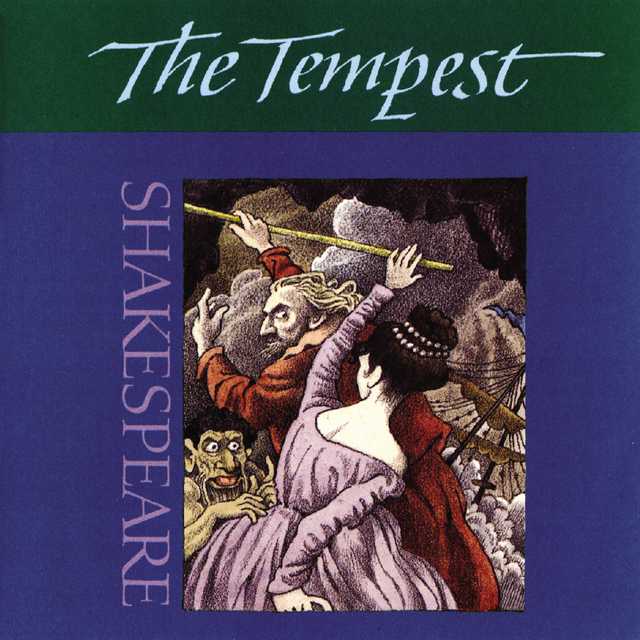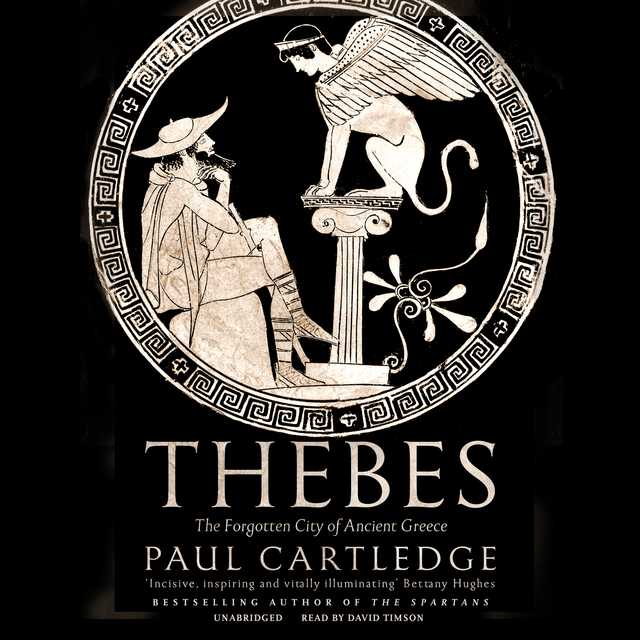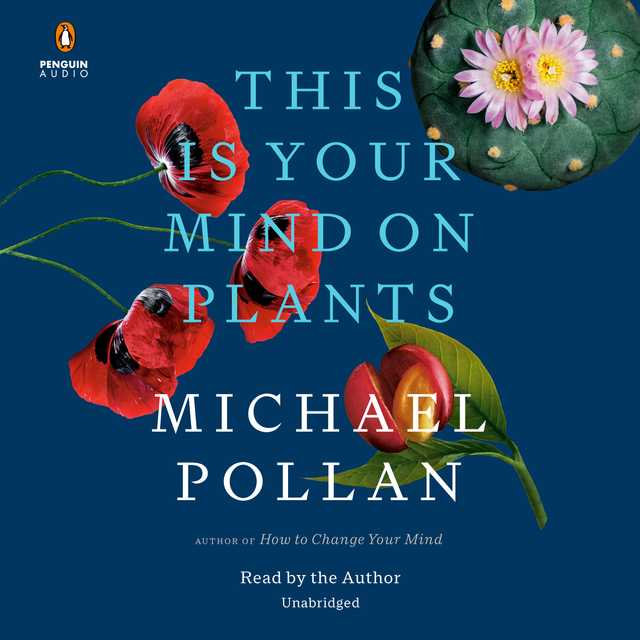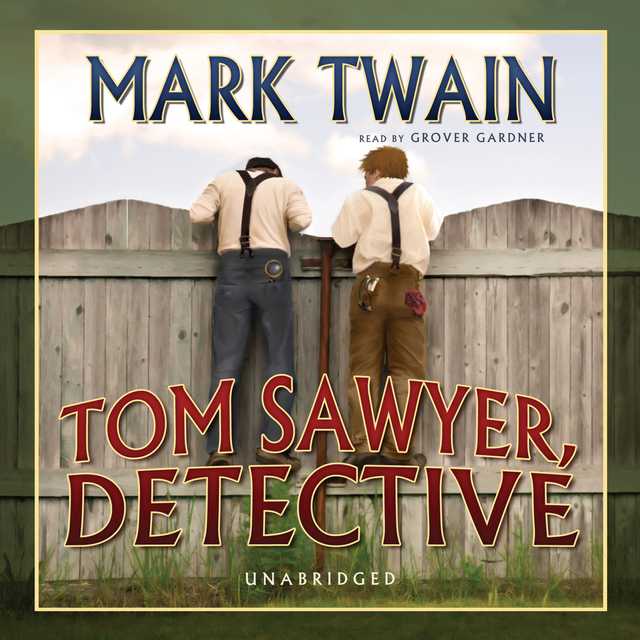The Tempest Audiobook Summary
“Our revels now are ended… this rough magic I here abjure…”
In Shakespeare hinting at the end of his own magnificent career in these and others lines spoken by the great magician, Prospero? The Tempest was the last of Shakespeare’s comedies, completed just before he retired to his native Stratford-upon-Avon; perhaps this delightful comedy was intended to signal the playwright’s farewell to his beloved theater. The Tempest reflects Shakespeare’s mature genius, with its story of innocence tempered by intrigue, hilarity bounded by melancholy. Audiences the world over still thrill to The Tempest’s dark comedy and magical fantasy.
Sir Michael Redgrave and Vanessa Redgrave helped to build one of England’s foremost theatrical families– a tradition that Ms. Redgrave continues today. And Hugh Griffith is one of the nation’s greatest character actors. Together, they bring The Tempest majestically to life.
Other Top Audiobooks
The Tempest Audiobook Narrator
Michael Redgrave is the narrator of The Tempest audiobook that was written by William Shakespeare
About the Author(s) of The Tempest
William Shakespeare is the author of The Tempest
More From the Same
- Author : William Shakespeare
- A Midsummer Night’s Dream
- The Sonnets
- The Tragedy Of Macbeth
- Seven Classic Plays
- Hamlet
- Publisher : Caedmon
- Dubliners
- Julius Caesar
- The Two Gentlemen of Verona
- The Tempest
- Measure for Measure
The Tempest Full Details
| Narrator | Michael Redgrave |
| Length | 2 hours 0 minutes |
| Author | William Shakespeare |
| Category | |
| Publisher | Caedmon |
| Release date | December 27, 2003 |
| ISBN | 9780060743130 |
Subjects
The publisher of the The Tempest is Caedmon. includes the following subjects: The BISAC Subject Code is Drama, Juvenile Nonfiction
Additional info
The publisher of the The Tempest is Caedmon. The imprint is Caedmon. It is supplied by Caedmon. The ISBN-13 is 9780060743130.
Global Availability
This book is only available in the United States.
Goodreads Reviews
Leonard
February 07, 2021
The Tempest is one of Shakespeare’s last plays, and somehow he probably knew this as he was writing and producing it. While I was rereading this book for the umpteenth time, I realised how strongly this particular play goes over and wraps up all the thirty-five plays that came before it.The plot is intricate, but could be summed up like so: Prospero lives on a remote island, deposed and exiled from his dukedom of Milan (as in King Lear, as in the Duke in As You Like It, or even the Duke in The Two Gentlemen of Verona). With him live Miranda, his young daughter, and two opposite spirits or forces of Nature, the ethereal Ariel (compare with Puck) and the chthonic Caliban, son of a witch (see Aaron, see Macbeth’s trio). A ship passes by, returning from Africa (Othello?), is caught in a storm (Lear again), and runs aground. The plot, like the vessel, then splits into three parts: 1) the encounter and apparently complicated love between young prince Ferdinand and Miranda (reminiscent of Romeo and Juliet or the couples in A Midsummer Night's Dream); 2) the regicide plot, in the forest, of treacherous Antonio and Sebastian against Alonso and Gonzalo (cf. Lear once more, Macbeth once more, so on); 3) the washed down jest between Caliban, Stephano and Trinculo (see all the jesters and divine drunkards from Speed to Falstaff).All these have a brush with disaster, but The Tempest, although it looks like a revenge play at first, is, in fact, a play on atonement, forgiveness, reconciliation and, ultimately, a journey home. And Prospero’s magic powers (the muse-like Ariel) is a device that allows Shakespeare both to test and to save all his characters, finally gathered together for the last time, before breaking his staff (his quill) and drowning his books (his plays), “deeper than did ever plummet sound”.Both sad and sweet ending for one of Shakespeare's major plays that would later inspire a considerable number of thinkers, artists and entertainers, from Defoe’s Robinson Crusoe and Swift’s Gulliver's Travels to J.J. Abrams' Lost.Edit: I realise that I failed to mention the massive influence this play has had on the Science-Fiction genre (the ship-that-lands-on-an-uncharted-planet business), especially in cinema, from Forbidden Planet (1956) to the Alien franchise (e.g. the plot of Ridley Scott’s Prometheus and Covenant). If you can think of any other similar reference, by all means, leave a comment.
Bill
August 30, 2020
Simple yet profound, The Tempest is a heartbreakingly sincere piece of elaborate theatrical artifice. Shakespeare is a magician at the height of his powers, so accomplished at his craft that he can reveal the mechanisms of his most marvelous tricks and still astonish us.This time through, I was stru
Jeffrey
April 11, 2019
****Spoiler alert. Which seems really funny to do with a play over 400 years old.**** ”Our revels now are ended...These our actors, As I fortold you, were all spirits, andAre melted into air, into thin air,And, like the baseless fabric of this vision,The cloud-capped towers, the gorgeous palaces,The solemn temples, the great globe itself,Yea, all which is inherit, shall dissolve, And, like this insubstantial pageant faded,Leave not a rack behind: we are such stuffAs dreams are made on; and our little lifeIs rounded with a sleep…” I’ve read this piece of writing numerous times in my life. I’ve discussed it in college classes. It has been mentioned or referred to several times in other books I’ve read over the years. Yet, I was reading along, caught up in Shakespeare’s prose. By this point in the play, I am as zoned in as if I were a petty thief, or a washerwoman, or a butcher with blood under my fingernails in the pit at The Globe, watching this play unfold before my eyes. Ariel may have even cast a spell on me from beyond the pale. ”We are such stuff as dreams are made on.”With all that exposure to these words, these bloody brilliant words, my eyes still sting with tears as if I am reading them for the first time. Maybe it is the spell of Shakespeare, but I am caught completely unawares. As jaded as I think I am, and life has proved to be less than ideal for me, my reaction to this line tells me that I still have a strand of hope twined round my soul. I still believe in dreams. Prospero, through the treachery of his brother Antonio, is deposed as Duke of Milan. He is sent out in a leaky boat with his child Miranda to die, but he does not die and lands on an island where he raises his daughter. He survives through the help of a savage, a Hag-seed (born of a witch), who shows he and his daughter how to survive on the island. When Caliban is overcome with desire for Miranda (he had dreams of repopulating the island with little Calibans), Prospero reacts as many fathers would, by enslaving Caliban through magic acquired from his command of the spirit Ariel. In this time period, writers believed that magicians became powerful through their dominance over a spirit. Wizards did not have power themselves, but only by commanding a spirit to do their bidding. Caliban is an interesting character. Since he was on the island first, he sees himself as king of the island. His subjugation by Prospero can be interpreted as the same type of subjugation imposed upon indigenous people all over the world. Caliban is brutal, physically strong, mentally weak, and vengeful. He knows what is important to Prospero, even more important possibly than his daughter Miranda. ”First to possess his books; for without themHe’s but a sot, as I am; nor hath notOne spirit to command: they all do hate him,As rootedly as I. Burn but his books. He has brave utensils--for so he calls them--Which, when he has a house, he’ll deck withal.”It shows how close Caliban and Prospero once were that Prospero would be sharing such dreams with Caliban. Books are what got Prospero in trouble in the first place. ”Knowing I loved my books, he furnished meFrom mine own library with volumes thatI prize above my dukedom.” Prospero, in other words, had his head buried in books so deeply that he was unprepared for his brother to usurp his place. He was searching for power and, in the process, lost what power he already possessed. Thank goodness the faithful Gonzalo took pity on Prospero and snuck his books on the boat. Nothing worse than being marooned on an island without books. To keep from going mad, I would have to carve what I can remember of the great classics into the bark of wood. ”Call me Ishmael.”Revenge burns bright in the soul of Prospero, and when he gets his chance, he sends Ariel to create a tempest to bring his enemies to him. They just happen to be on a ship passing close to the island. What opportunity be this! King Alonso of Naples, who helped Antonio overthrow his brother, is now on the island. So is his son Ferdinand, his brother Sebastian, and of course, the main focus of vengeance for Prospero, his brother Antonio. Needless to say, treachery abounds among the troop. Antonio actively encourages Sebastian to do as he did and overthrow his brother. What better opportunity than here on an island? Toss him in a bog, or run him through with a sword, or maybe let Caliban eat him. What makes this all very interesting to me is that Prospero, using Ariel, intercedes. When we get to the end of the play and they are all saved by the boat returning, Prospero says: ”I’ll break my staff, Bury it certain fathoms in the earth,And deeper than did ever plummet soundI’ll drown my book.”Okay, so Prospero and his lovely daughter Miranda are about to get on a boat with all these other duplicitous, backstabbing, certainly untrustworthy, wickedly ambitious people, and he has just released Ariel from his service and destroyed his ability to summon a protective spirit?So what are the chances that Prospero gets slung off into the ocean to be a tasty treat for a swarm of sharks and Miranda doesn’t marry Ferdinand, but becomes his mistress Mandy? There has also been speculation about whether Caliban gets on the boat to sail back to Italy with them. In my mind, Caliban sees himself as the King of the Island, so why would he leave now that his usurper is leaving? Nice parallel with Antonio overthrowing Prospero, and Prospero overthrowing Caliban. As always with Shakespeare there is much to puzzle on in each and everyone of his plays. I’ve only chosen to discuss a few aspects of the play of most interest to me this time reading it. Next time, it could be several other aspects that catch my attention for discussion. I know there are many who do not appreciate Shakespeare, but he is worth the effort. Read Cliff’s Notes, consult Spark Notes, and read summaries of the plot even before reading the play. The extra work will increase your understanding and enjoyment of any of his plays. Hopefully, once in a while, the Bard will catch you off guard as he does me and touch your reader’s soul with words that lift that weary mantle of cynicism from your shoulders for a brief and beautiful moment. ”My Shakespeare, rise; I will not lodge thee byChaucer or Spenser, or bid Beaumont lyeA little further, to make thee a roome…,Thou art a Moniment, without a tombe,And art alive still, while thy Booke doth live,And we have wits to read, and praise to give.-----Ben Jonson If you wish to see more of my most recent book and movie reviews, visit http://www.jeffreykeeten.comI also have a Facebook blogger page at:https://www.facebook.com/JeffreyKeeten
Ahmad
October 30, 2021
The Tempest, William Shakespeare The Tempest is a play by William Shakespeare, believed to have been written in 1610–1611, and thought by many critics to be the last play that Shakespeare wrote alone. It is set on a remote island, where the sorcerer Prospero, rightful Duke of Milan, plots to restore his daughter Miranda to her rightful place using illusion and skillful manipulation. He conjures up a storm, the eponymous tempest, to cause his usurping brother Antonio and the complicit King Alonso of Naples to believe they are shipwrecked and marooned on the island. There, his machinations bring about the revelation of Antonio's lowly nature, the redemption of the King, and the marriage of Miranda to Alonso's son, Ferdinand.تاریخ نخستین خوانش: پنجم ژوئیه سال 1972میلادی؛عنوان: طوفان؛ نویسنده: ویلیام شکسپیر؛ مترجم: ابراهیم یونسی؛ تهران، نشر اندیشه، سال1351؛ چاپ دوم سال1357؛ در174ص؛ چاپ دیگر تهران، دادار، سماط، سال1383؛ در144ص؛ چاپ دیگر تهران، نگاه، سال1393، در157ص؛ شابک9786003760110؛ موضوع نمایشنامه های نویسندگان بریتانیا - سده 17ممترجم: اسماعیل دولتشاهی؛ تهران، بدیع، سال1374؛ ؛ در248ص؛ نمایشنامه در پنج پرده تدوین شده؛ و دارای شانزده شخصیت، و تعدادی سیاهی لشکر است؛شخصیتها: «پروسپرو: دوک میلان، مردی دانشور، خردمند، آشنا به نجوم و فلسفه، پرهیزگار، و بعدها جادوگری بس نیرومند»؛ «میراندا: دختر دوک، هرگز چشمش به مردی جز پدرش نیفتاده، همچون مرواریدی بیرون از صدف است»؛ «فردیناند: پسر پادشاه ناپل، میراندا بجز برای او، برای مرد دیگری شوق و آرزو نداشت»؛ «آریل: روحی در فرمان پروسپرو، حیله گر، نشانه ای از تردستی و قدرت پروسپرو در سحر و جادو، برای تسلط بر عناصر فرادست زمین، همچون: باد و تندر و آتش»؛ «کالیبان: برده و آلت دست پروسپرو، تخم ریز شیطان، و جادوگری در زمین، نقطه ی مقابل آریل، نشان قدرت پروسپرو در سحر و جادو، برای تسلط بر عناصر فرودست زمین همچون: خاک و آب»؛ «آلونسو: پادشاه ضعیف، و بی اراده ی ناپل»؛ «سباستین: برادر خائن پادشاه ناپل»؛ و «آنتونیو»؛ «گونزالو»؛ «ترینکولا»؛ «استفانو»؛ «آدریان»؛ «فرانسیسکو»؛ «آیرس»؛ «سیریس»؛ «ژونو»؛ «ناخدای کشتی»؛ «حوریان»؛ «پاروزنان»؛ و «ملوانان»؛در جزیره ای زیبا و افسونگر، در دریاهای مناطق گرمسیری، «پروسپرو» و دخترش «میراندا»، زندگی میکنند؛ دوازده سال پیشتر، «پروسپرو» حاکم دوک نشین «میلان» بوده؛ ایشان در آن سالها، شب و روز سرگرم، و مجذوب مطالعات، پیشگویی، و احضارِ ارواحِ مردگان بوده، و امور دولتی نیز، در دستان برادرش «آنتونیو»؛ «آنتونیو»ی پلید، با زد و بند، و یاری «آلونسو، پادشاه ناپل»؛ رفته رفته دولت، و اموال «پروسپرو» را غصب کرده؛ و سرانجام او، و دختر خردسالش را، در قایقی بی بادبان، در دریا رها میسازد؛ آنچه جان آن دو را نجات میدهد، یاری پنهانی «گونزالو»، دوست خوب، و از مشاوران دیرین «پروسپرو» است؛ «گونزالو»، چون از نقشه خبر داشته، شب پیش از تبعید بی رحمانه ی دوک، دست به کار یاری رساندن شده، و افزون بر مهیا کردن وسایل لازم برای قایق، و ذخیره ی آب و خوراک، عصای سحرآمیز، و بسیاری از کتب خود، درباره ی سحر و جادو را نیز، برای دوک تبعید شده، میگذارد؛ دوک و فرزندش، پس از سرگردانی بسیار در میان امواج، عاقبت در جزیره ای کوچک، و دور افتاده، که متعلق به «کالیبان»، بچه خوک بی مادر، و جادوگر شرور است، به ساحل میرسند؛ تلاشهای فراوان «پروسپرو»، برای آدم کردن بچه دیو، بیهوده است؛ چون او به گونه ای ارثی، ابلیس زاده و هیزم شکن است؛ افزون بر آن، برده ی خام و خشن، موجود دیگری نیز در آسمان جزیره، به خدمت «پروسپرو» درآمده: او «آریل» نام دارد، با روحی لطیف و دلپذیر، همچون بادهای آسمانی، و نقطه ی مقابل «کالیبان» زمینی و حیوانی است؛ اکنون سالها بگذشته، «پروسپرو»، با دانش پیشین خود، و با خواندن کتابهای «گونزالو»، تبدیل به جادوگری چیره دست شده است؛ او از راه سحر و افسون آگاه میشود، که جمع دشمنان دیرینش، پس از عروسی شاهزاده خانم ناپل، برای خوشگذرانی، و دوران ماه عسل، با کشتی عازم همان جزیره هستند؛ «پروسپرو» به یاری «آریل»، طوفانی سهمناک برمیانگیزد؛ و کشتی آنان را غرق میکند، ولی تمام سرنشینان را به نحوی بر تخته پاره های کشتی شکسته، به صورت گروه های پراکنده، به سواحل جزیره میآورد.؛ و ...؛تاریخ بهنگام رسانی 05/10/1399هجری خورشیدی؛ 08/08/1400هجری خورشیدی؛ ا. شربیانی
Sean Barrs
November 27, 2016
It’s so easy to judge Caliban based upon his actions and his violent speech, but he does have some real problems that cause them. He tried to rape Miranda. This is, of course, an absolutely terrible thing; however, does Caliban actually know this? In his life he has only known two people prior to meeting Prospero and Miranda. The first person he knew of was his mother; she was the evil witch who raised him. This doesn’t sound like a fun childhood. The second person he knew was his mother’s slave Ariel; he would have witnessed his mother abuse her slave, and he would have seen her imprison him. That’s it. That’s all the life experience Caliban has had. He has had nobody teach him human values or appropriate behaviour. “As wicked dew as e'er my mother brushedWith raven's feather from unwholesom fenDrop on you both! A southwest blow on yeAnd blister you all o'er!”This doesn’t justify his crimes, though it does explain them. I don’t think he fully knows right from wrong. He’s had nobody teach him it. The only other woman he’s ever seen is his mother. He just didn’t know how to behave with other people, and certainly not with other females. He didn’t even have speech till Prospero let Miranda teach him it. I don’t think Caliban is fully responsible for his actions. Prospero should have taught him these things as soon as her arrived on the island; he should have seen Caliban for what he was an aided him his education completley rather than looking down upon him. Indeed, he took control of the island, and used Caliban as his lackey. He wasn’t his slave in the beginning that came after the rape attempt, but he still didn’t fully respect Caliban as an individual. He entered Caliban’s home and made himself ruler of the island. Caliban’s wasn’t considered in this. To him Prospero was a foreign invader. Prospero didn’t have much choice in the matter either, he was exiled after all, but he could have approached the situation with more tact. Caliban is clearly a volatile individual who doesn’t fully understand what it is to be human. You have to live with other humans for that to develop. Caliban has been alone for a long time. Prospero, for all his knowledge, failed to fully comprehend the complexities of the situation. When he looked at Caliban he didn’t perceive how he may receive his coming to the island. Is it any wonder that Caliban becomes even more bitter and twisted?You taught me language; and my profit on'tIs, I know how to curse. The red plague rid youFor learning me your language!It’s a complex situation. One that becomes even more complex by the arrival of Prospero’s past on the horizon. He sets to dealing with it, but, again, he doesn’t consider Caliban. So, Caliban mistakenly thinks two of the new arrivals are Gods because they carry with them alcohol. This isn’t something he’s seen before, so to him it is a thing of wonderment and real potency. He quickly offers to share with them the secrets of the island, and in doing so enslaves himself once again. This is his problem. Prospero has treated him as a slave so he now identifies himself as a slave, and attempts to take on that same role with a new master. He thinks that is what he is supposed to do. He doesn’t know anything else. Poor Caliban. Out of all the characters in this play, he’s situation is the one that produces the most empathy. Prospero is driven by knowledge, and in his exile he can now seek it. I don’t remotely feel sorry for him. Miranda finds her happiness, so she’s okay. But, Caliban is left alone. He’s left on the island by himself. He now has inherited what was rightfully his, but his story never receives any real closure. I can’t help but think that this situation could, again, happen to the man. If he can mistake a pair of idiots for Gods then who else could he mistake in the future? For me, Caliban steals the stage in this play. I don’t really consider the other characters properly because his situation is the one that is most thought provoking. For me, The Tempest will always be the play that represents the voice of the colonised through the expression of Caliban’s desire to be left alone, and the ability to rule himself. Congratulations Shakespeare: you’ve somehow managed to write a play that pre-dates postcolonial theory by almost 400 years!
Henry
May 14, 2019
William Shakespeare's last play which he wrote every word of, the burnt-out but rich distinguished gentleman just wanted to go back to his little, quiet, pretty home town of Stratford-upon-Avon and relax, enjoy himself. After more than twenty strenuous, nevertheless productive years of writing for the stage, he needs the calm and leave noisy London, far, far, behind. Besides Shakespeare is pushing 50, old for the time (17th century ) his illustrious career unmatched, then or now... The Tempest story begins with a terrific storm that drives a ship carrying noblemen on the shore of an unnamed, small island off the coast of probably Italy (Shakespeare is vague about the location). The rest of the fleet is scattered around the Mediterranean Sea and the passengers and crews, believe the nobles vessel has sadly gone down, unable to survive the gigantic waves...still they were lucky returning, and had been to a very important wedding in Tunis North Africa, the royals think it's a deserted isle...not so. Prospero, a sorcerer rules this land but since only three "people" live there , his attractive young daughter Miranda and the deformed slave , son of a witch Caliban are the others, the kingdom's value is very limited indeed. Prospero a thinly disguised Shakespeare, has learned black magic from obscure, maybe evil books the former Duke of Milan, who was overthrown by his treacherous brother Antonio, with the help of the equally wicked King of Naples Alonso. He and his infant daughter had narrowly escaped death, the Duke was a bookworm, not the best way to govern, during those tumultuous days of constant wars ... Both Alonso and Antonio are not coincidentally shipwrecked on this land now, being on the doomed ship; Ariel the magician's servant one of several supernatural entities controlled by Prospero, is a powerful wind spirit caused the bad weather (at his master's request). Does the mighty sorcerer seek understandably sweet revenge? After twelve excruciating years, stuck on this miserable bleak place. Ferdinand the King's son meets Miranda age 15, she has only seen two men in her life Caliban, the primitive and the gentle Prospero. It's love at first sight, something is strange about their encounter the father seems happy over the situation, but Alonso is an old enemy. ..Plots of course for power ensue, even here men always seek to better their lives by killing others, will it ever change? Shakespeare like the enigmatic Prospero wants peace and tranquility, to enjoy himself in his last fleeting days. One in Milan the other Stratford, since they are both the same man it doesn't matter... the "brief candle" goes out. ..The author believes, in the meantime that men (and women) should be kind to one another. Such passion from a gentleman if ever proof is required, the unparalleled genius of the Bard.
J.L.
May 03, 2019
William Shakespeare’s The Tempest is interesting on so many levels. I especially like how it looks at both the economic benefits of colonialism along with its much uglier side, namely, exploitation and racism. In the play, Prospero, as banished duke of Milan, has taken control of a small island and enslaved Caliban who Prospero sees as unfit to rule his native land. Shakespeare brilliantly captures this attitude of superiority toward the colonized. This is something that will have implications for hundreds of years as England and the other European powers vie for territory around the world. The other-worldly setting for The Tempest shows the mechanism of turning the colonized into the ‘other.’ Caliban is repeatedly referred to as a monster and called out for his lack of gratitude; civilization has been brought to him yet (for some reason) he isn’t thankful. Of course, these supposed benefits come with a cost: oppression, exploitation and all the other evils of ‘civilization.’ Prospero takes his ownership over the island a step further as he uses his magical abilities to exercise complete dominion over the entire island and its inhabitants. It is critical that, in the course of the play, Prospero struggles with his conscience and, in the end, gives up power (magic) and prepares to leave the stage: “Our revels now are ended. These our actors, As I foretold you, were all spirits and Are melted into air, into thin air: And, like the baseless fabric of this vision, The cloud-capp’d towers, the gorgeous palaces, The solemn temples, the great globe itself, Yea, all which it inherit, shall dissolve And, like this insubstantial pageant faded, Leave not a rack behind. We are such stuff As dreams are made on, and our little life Is rounded with a sleep.” I’ve seen The Tempest performed two times, most memorably at Delacorte Theater in Central Park. Patrick Stewart played the aging but powerful enchanter, Prospero. Stewart really made Prospero’s moral struggle come alive. Shakespeare’s evocative language is, of course, on display in this play, but this play also shows how language can be used as a weapon of the colonizer. Thought to be the last play Shakespeare completed, The Tempest is also among his best and most relevant.
Virginia Ronan
October 02, 2017
“Hell is empty, and all the devils are here!”Because of Warner!
Tadiana ✩Night Owl☽
November 07, 2016
Prospero manipulates his daughter Miranda, the prince Ferdinand, his father (the King of Naples), Ariel, Caliban, and the rest of the cast! But in the end **spoiler warning here, if anyone actually needs it** he sets his slaves free and forgives those who've wronged (tried to murder) him, and also has some really excellent lines, so it's all good.Review to come.Initial comments: The "book from the 1600s" space is one of the last few that need to be filled in on my 2016 Classics Bingo card. I tried and failed to get into Milton's Paradise Lost, but The Tempest is going down a lot easier. :)
Bram
March 12, 2010
Knowing that The Tempest is most likely Shakespeare's final play, it's hard to avoid noticing the hints of retirement in the text. Toward the end of the final act, Prospero solemnly describes the conclusion of his practice of the magic arts, just as Shakespeare might describe the end of his writing career:Have I given fire and rifted Jove's stout oakWith his own bolt; the strong-based promontoryHave I made shake and by the spurs pluck'd upThe pine and cedar: graves at my commandHave waked their sleepers, oped, and let 'em forthBy my so potent art. But this rough magicI here abjure, and, when I have requiredSome heavenly music, which even now I do,To work mine end upon their senses thatThis airy charm is for, I'll break my staff,Bury it certain fathoms in the earth,And deeper than did ever plummet soundI'll drown my book.Beyond this connection, it’s fun if idly fruitless to try to expand the Prospero-as-Shakespeare angle. For example, Prospero, the Duke of Milan, was usurped by his brother. Was Shakespeare replaced as the king’s or the populace’s most favored playwright? Perhaps he was eclipsed by or had a falling out with Ben Jonson, who felt confident enough to be the first to publish a written collection of his plays (something Shakespeare never did) and who mocked Shakespeare and his Tempest subject matter in one of his own plays, Bartholomew Fair. As I said, it’s idle speculation, particularly when engaged in by someone unfamiliar with the time period. But the text does seem to encourage some autobiographical reading, and it’s certainly fun to consider the possibilities. One thing that continues to impress me about Shakespeare is his refusal to create blameless heroes. Even if we end up feeling very sympathetic toward someone, there's always something to nag us and remind us that this character isn’t irreproachable. In the Richard II—Henry IV—Henry V cycle, Hal has a remarkable and redemptive character arc, but he must abandon his rowdy friends most cruelly to achieve this. As someone who wants to love and celebrate Hal unreservedly, this fact is like a thorn that pokes me every time I cheer too loudly during the St. Crispin's Day speech. Like Hal, Prospero has a troubling relationship that mars his character. As mentioned above, he was usurped. But then he became the usurper, enslaving an 'uninhabited' island's sole inhabitant (and therefore the ruler of sorts), Caliban, and treating him harshly. (For the record, Caliban's witch mother usurped the original fairies of the Island, Ariel et al., when she was dropped off by some sailors while pregnant.) The story of the enslavement is morally complicated, it's true. Caliban was apparently well-treated, if still usurped, before he attempted to rape Prospero's daughter, thus leading to the mistreatment and his begrudging service as we encounter them during the three hours of the play (side note: Before Jack Bauer and 24, Shakespeare had already created a drama where the play length occurs in real time). There's also the troubling distinction between Prospero's two slaves, Caliban and Ariel. Caliban, a hideous semi-human monster, is rude and bitter and therefore 'deserves' his slave state and cruel treatment, while obedient Ariel is set free at the story's end. But because Prospero is leaving the island to return to Milan at the conclusion, even Caliban can look forward to freedom once again. And so in the end, Prospero wins us over with his capacity for forgiveness and his desire to do everyone a good turn, while only desiring to finish off his days in Milan “where/Every third thought shall be my grave.” While he spends much of the play spooking those who’d wronged him with spirit visitations and magical scenes, he eventually leaves anger and vengeance behind. Interestingly, it’s the nonhuman spirit slave Ariel who encourages Prospero to be humane and compassionate:ARIEL Your charm so strongly works 'emThat if you now beheld them, your affectionsWould become tender.PROSPERO Dost thou think so, spirit?ARIEL Mine would, sir, were I human.PROSPERO And mine shall.Hast thou, which art but air, a touch, a feelingOf their afflictions, and shall not myself,One of their kind, that relish all as sharply,Passion as they, be kindlier moved than thou art?Though with their high wrongs I am struck to the quick,Yet with my nobler reason 'gainst my furyDo I take part: the rarer action isIn virtue than in vengeance.Perhaps this suggestion had to come from a nonhuman since treating kindly those who’ve wronged us can seem most unnatural. Shakespeare seems to recognize that this type of forgiveness, especially offered to those who have intentionally affected one’s life for the worse, is exceptionally difficult to bestow. But he also seems to recognize that overcoming this difficulty is well worth it, perhaps more for the sake of the forgiver than that of the forgiven.
Most Popular Audiobooks
Frequently asked questions
Listening to audiobooks not only easy, it is also very convenient. You can listen to audiobooks on almost every device. From your laptop to your smart phone or even a smart speaker like Apple HomePod or even Alexa. Here’s how you can get started listening to audiobooks.
- 1. Download your favorite audiobook app such as Speechify.
- 2. Sign up for an account.
- 3. Browse the library for the best audiobooks and select the first one for free
- 4. Download the audiobook file to your device
- 5. Open the Speechify audiobook app and select the audiobook you want to listen to.
- 6. Adjust the playback speed and other settings to your preference.
- 7. Press play and enjoy!
While you can listen to the bestsellers on almost any device, and preferences may vary, generally smart phones are offer the most convenience factor. You could be working out, grocery shopping, or even watching your dog in the dog park on a Saturday morning.
However, most audiobook apps work across multiple devices so you can pick up that riveting new Stephen King book you started at the dog park, back on your laptop when you get back home.
Speechify is one of the best apps for audiobooks. The pricing structure is the most competitive in the market and the app is easy to use. It features the best sellers and award winning authors. Listen to your favorite books or discover new ones and listen to real voice actors read to you. Getting started is easy, the first book is free.
Research showcasing the brain health benefits of reading on a regular basis is wide-ranging and undeniable. However, research comparing the benefits of reading vs listening is much more sparse. According to professor of psychology and author Dr. Kristen Willeumier, though, there is good reason to believe that the reading experience provided by audiobooks offers many of the same brain benefits as reading a physical book.
Audiobooks are recordings of books that are read aloud by a professional voice actor. The recordings are typically available for purchase and download in digital formats such as MP3, WMA, or AAC. They can also be streamed from online services like Speechify, Audible, AppleBooks, or Spotify.
You simply download the app onto your smart phone, create your account, and in Speechify, you can choose your first book, from our vast library of best-sellers and classics, to read for free.
Audiobooks, like real books can add up over time. Here’s where you can listen to audiobooks for free. Speechify let’s you read your first best seller for free. Apart from that, we have a vast selection of free audiobooks that you can enjoy. Get the same rich experience no matter if the book was free or not.
It depends. Yes, there are free audiobooks and paid audiobooks. Speechify offers a blend of both!
It varies. The easiest way depends on a few things. The app and service you use, which device, and platform. Speechify is the easiest way to listen to audiobooks. Downloading the app is quick. It is not a large app and does not eat up space on your iPhone or Android device.
Listening to audiobooks on your smart phone, with Speechify, is the easiest way to listen to audiobooks.






























